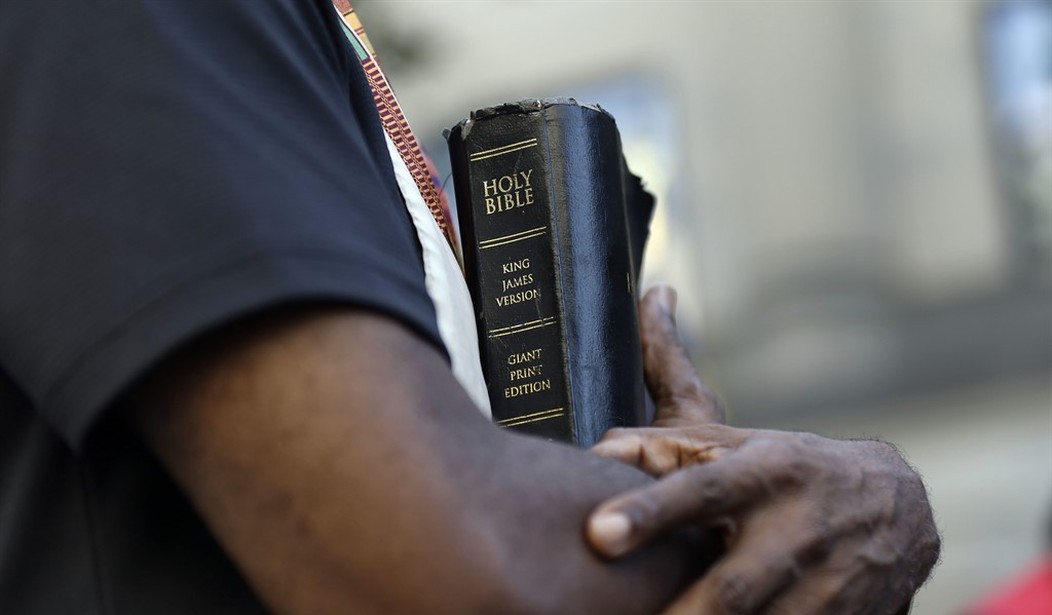In the Western world today, particularly in America, there persists this idea among both Christians and non-Christians alike that, to be a Christian, one must endorse a specific kind of vision of how societies should be organized politically.
While it is true that few, if any, contemporary Christians endorse a theocracy, and while it is true that few advocate on behalf of anything approximating a utopian politics, it is no less true that a good number, and possibly most, Western Christians are political perfectionists.
In political philosophy, perfectionism is an approach that assigns to the state or government the role of cultivating virtue in its citizens. Not unlike any and every theory, perfectionism admits of multiple variations. But common to all of its versions is the belief that government has a positive educative function, the belief that government is supposed to be an agent of character formation.
Communism and socialism are forms of perfectionism, certainly, but so too are the theories of Aristotle, Thomas Aquinas, and any number of other approaches that needn’t have much else in common with such modern collectivist ideologies.
When Pope Francis (and legions of other Christians) demand of the governments of affluent Western societies that they admit into their countries potentially limitless numbers of immigrants and refugees from alien cultures, and they make this demand, whether explicitly or implicitly, in the name of Christ; they betray a commitment to Christian perfectionism. After all, it is only the peoples of European lands, i.e., those whose ancestors were historically Christian and who built the most affluent societies the world has ever known, at whom the Pope and his ilk aim their moral imperatives.
Christianity requires, Francis would have us think, for the governments of the West—or, more precisely, the taxpayers who subsidize them—to make a range of provisions for the millions of strangers entering their lands, regardless of the costs.
Recommended
When Christians, on the alleged basis of their religion, maintain that the United States government must finance and defend Israel; provide “foreign aid;” abolish capital punishment; criminalize suicide, prostitution, and recreational drug use; make the world safe for Democracy; and, comprehensively, serve the world in being a City on a Hill, they reveal their perfectionism.
Things were not always so.
Jesus Himself said simply: “Give to Caesar what belongs to Caesar, and give to God what belongs to God.”
St. Paul was clearly no perfectionist. Admittedly, after his encounter with Christ on the road to Damascus, the man formerly known as Saul was interested in nothing other than spreading the Gospel to the Gentile world. Paul was a brilliant theologian, a scholar of the Hebrew Scriptures (The Old Testament), and, most importantly, an apostle. He spent little time writing about politics. Yet from what he did say, we can abstract the bare outlines of a certain kind of vision of politics.
Paul wrote: “Let every person be subject to the governing authorities; for there is no authority except from God, and those authorities that exist have been instituted by God.” The state is “God’s servant” ordained, not to make citizens into good and pious individuals, but to instill “terror” through “the sword” in those who act criminally. None are to resist the authorities, Paul says, for the latter derive their authority from God and exist for the sake of making society a tolerable, peaceful place to live. “Do you wish to have no fear of the authority? Then do what is good, and you will receive its approval; for it is God’s servant for your good. But if you do what is wrong, you should be afraid, for the authority does not bear the sword in vain! It is the servant of God to execute wrath on the wrongdoer” (Romans 13: 1-4).
St. Augustine (354-430) is perhaps the most influential Christian thinker of all time and one of the most influential philosophers, Christian or otherwise. A bishop, prolific writer, and master rhetorician, Augustine brought his prodigious intellectual powers to bear upon the formation of a Christian philosophy, something that heretofore didn’t actually exist. More specifically, Augustine was the first Christian thinker to treat, philosophically, the subjects of time, history, motion, eternity, and creation. His contributions have proven to be immeasurable.
In political philosophy, Augustine pursued the direction in which Paul pointed. There are two “cities,” he said, “the earthly city” and “the city of God.” These are not literal, geographical regions but spiritual and moral conditions. Those who are of the earthly city live according to “the flesh.” Conversely, those who are of the city of God live according to “the spirit.”
Each city is distinguished from the other on account of what it loves. Those of the earthly city are driven by “the love of self, even to the contempt of God,” while the inhabitants of the city of God are motivated by “the love of God, even to the contempt of self.”
Even so, the earthly city “has its good in this world, and rejoices in it with such joy as things can afford.” The end of the earthly city is peace, “well-ordered concord of civic obedience and rule,” “the combination of men’s wills to attain the things which are helpful to this life.” Peace, even a temporal peace of the sort for the sake of which the earthly city exists, is a good.
However, this peace “is rather the solace of our misery than the positive enjoyment of felicity.” The state is supposed to essentially constrain vice, not promote virtue.
Ultimately, though, there is no true justice in this world, for true justice is to be found only “in that republic whose founder and ruler is Christ [.]” And what this in turn implies is that “kingdoms” are “but great robberies” and “robberies themselves” are “but little kingdoms.”
At this time when “progressivism” has infiltrated Christian denominations in the West, it would behoove Christians to acquaint themselves with their tradition.

























Join the conversation as a VIP Member